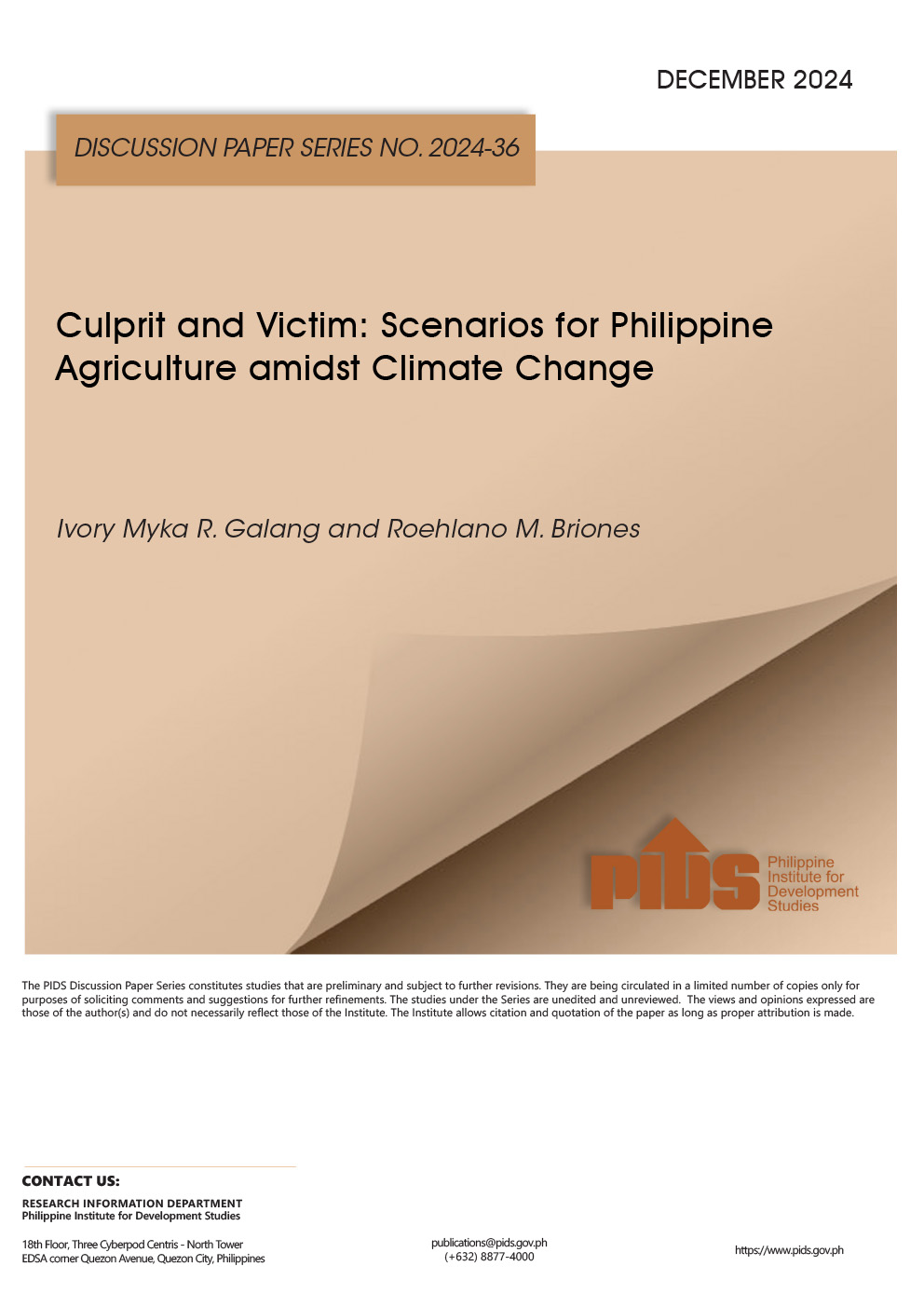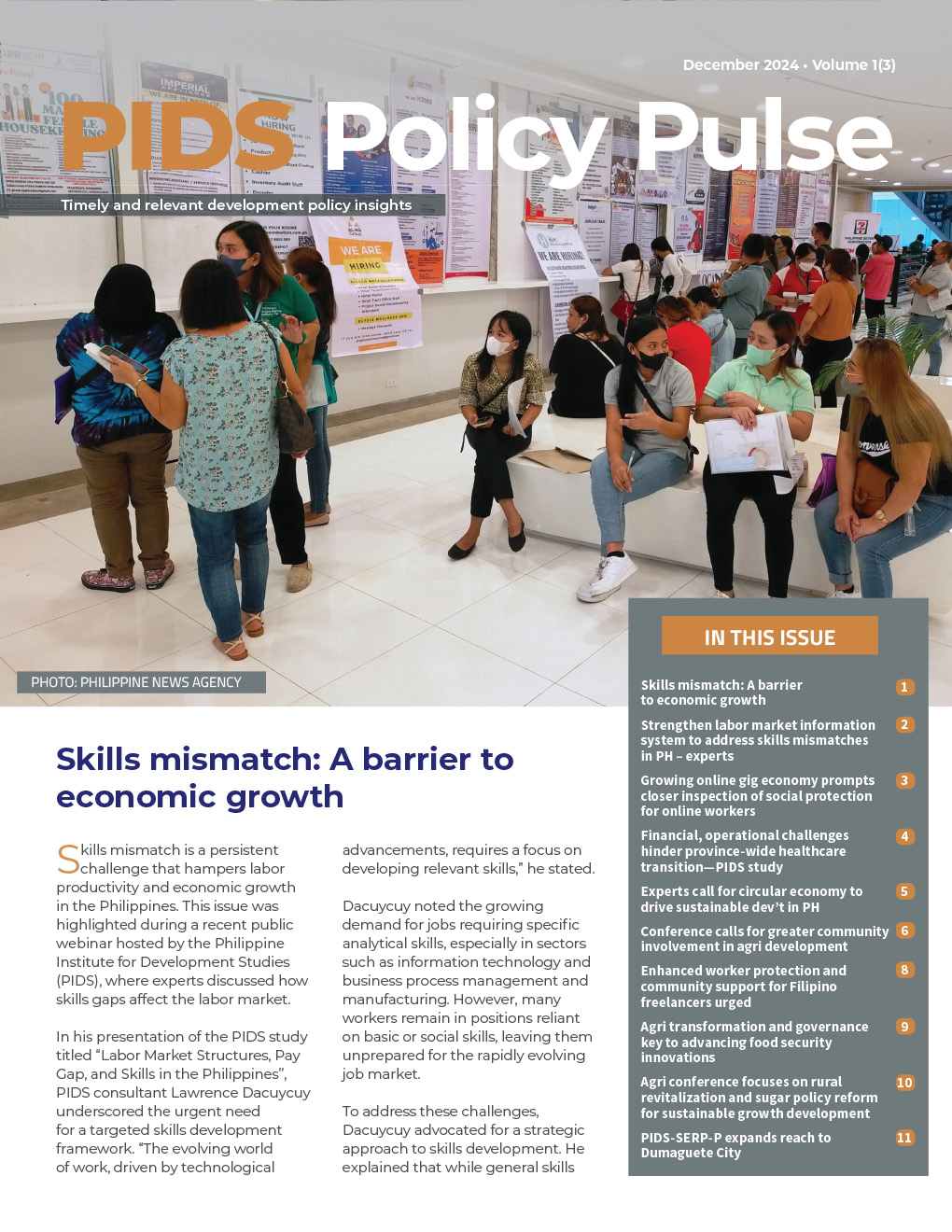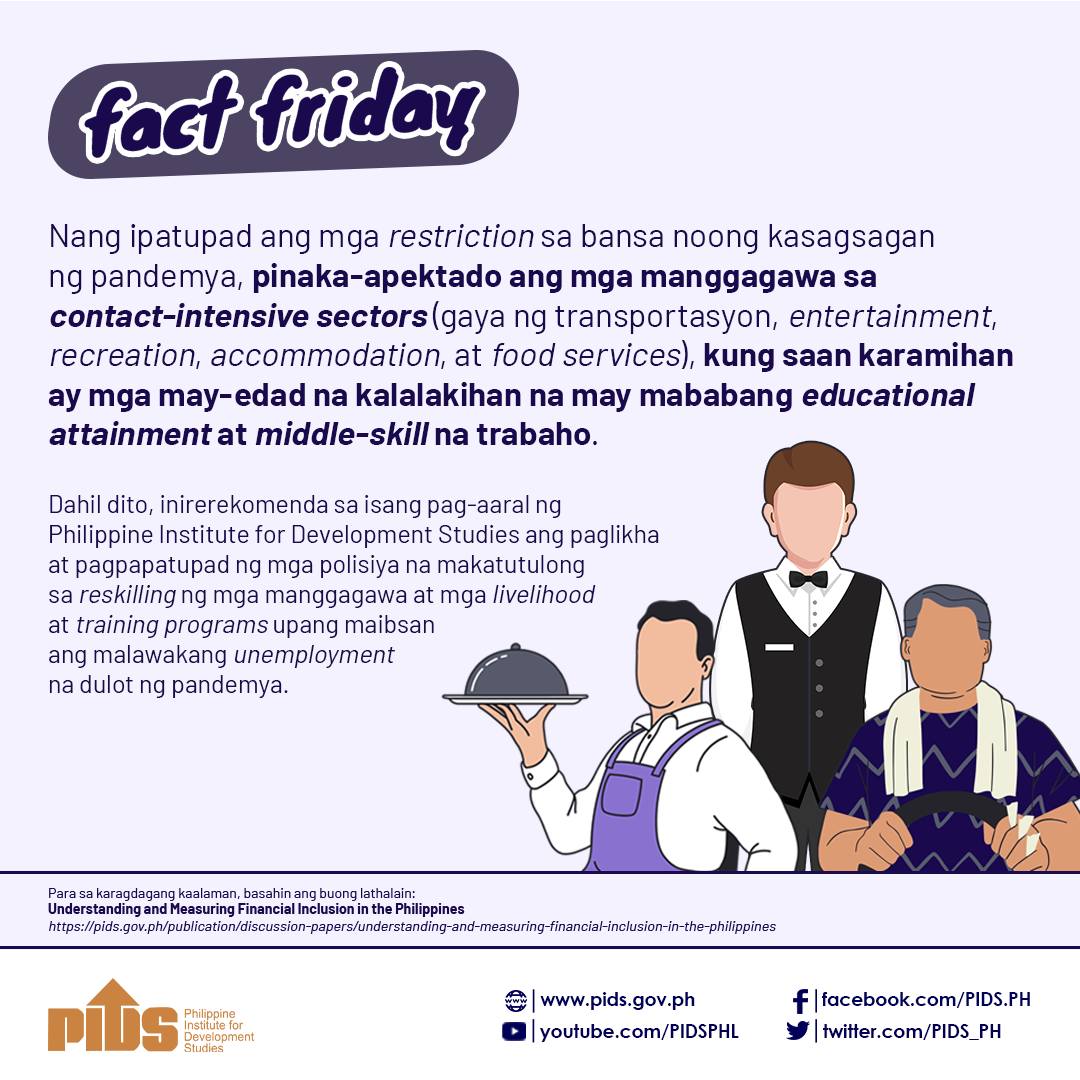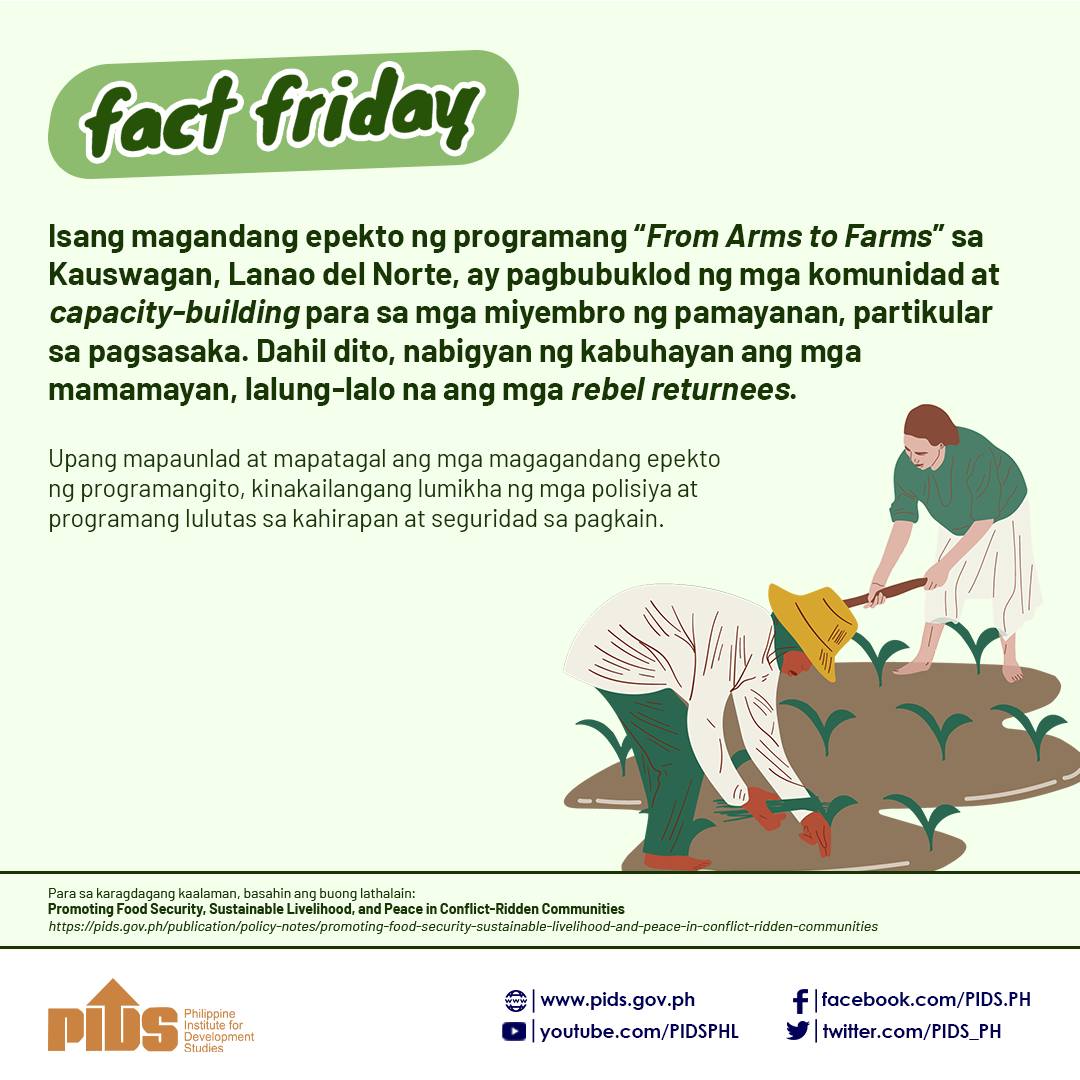LOCAL food producers must brace for a new challenge after lockdowns are lifted in the country: slower and lower food demand, industry players and experts told the BusinessMirror.
Philippine Institute for Development Studies (PIDS) senior research fellow Roehlano M. Briones said even if food remains essential, demand for these products would still take a blow as Filipinos try to survive the impact of Covid-19.
Briones added that Filipinos may opt to repay debts or even borrow more to recoup exhausted savings to survive post-enhanced community quarantine (ECQ).
“It doesn’t mean all savings will shift to food. Remember, incomes have dropped across the board, and even food demand will not grow as fast,” he told the BusinessMirror.
“We should be in survival mode for months with businesses trying to keep afloat while the situation [moves toward a new] normal,” he added.
Briones said consumers, especially those considered poor, may also cut on their consumption of meat products as they continue to tighten their belts due to lost income and savings.
“The poorest of the poor are somehow now in crisis. Food demand, despite being an essential, would not be as strong as before, in the next few months,” he said.
Briones said the implementation of health safety measures like social distancing in the food-service sector, such as restaurants, as part of the “new normal” would result in lower customer capacity, hence, lesser food demand.
Briones pointed out that small- and medium-sized eateries, particularly carinderias, would take the biggest hit post-ECQ as consumers abide by precautionary measures against Covid-19. Consumers would be afraid to eat now in carinderias. Plus, these eateries have lost a lot of working capital due to the ECQ,” he said.
“Sad to say: this is a full-scale slaughter of micro-, small- and medium-sized food restaurants,” he added.
For local producers like broiler raisers, the lost of demand, due to the shutdown of restaurants and food-service sector, has been the cause of millions in losses as it resulted in a domestic supply glut.
In fact, United Broiler Raisers Association President Elias Jose Inciong remains wary that food demand would return to normal once ECQs and GCQs are lifted in the country.
They are preparing for a worst-case scenario, wherein local output would not be able to meet any possible increase in demand as broiler raisers have reduced production due to low prevailing farm-gate prices, Inciong added.
He doesn’t see demand being “back pretty soon. Our worst-case scenario, assuming there’s increase in demand, [is that] production would be down relative to demand, but it would only be temporary,” he told the BusinessMirror.
Cold Chain Association of the Philippines President Anthony S. Dizon said food demand post-lockdowns would boil down to “consumer behavior.”
“The question now is, will there be a mad rush in demand? And how quickly [will] the economy in general be able to rebound?” Dizon told the BusinessMirror.
“But I would assume that the first thing consumers will do is to recover their savings. They may reduce their food consumption, particularly dining out,” Dizon added.
Dizon said the lifting of ECQ and GCQs would also put pressure on the cold-chain industry as they have to prepare to cater to all the unloading requirements of their clients.
“Once the food-service sector operations return, then demand for deliveries from cold storage would increase. The question for us is, do we have the capacity to load and cater all deliveries at once?” he asked.
Dizon added, “How many trucks are needed? Can you imagine if McDonald’s, Jollibee, KFC and all restaurants return to normal operations? That is one of our anxieties.”
Philippine Institute for Development Studies (PIDS) senior research fellow Roehlano M. Briones said even if food remains essential, demand for these products would still take a blow as Filipinos try to survive the impact of Covid-19.
Briones added that Filipinos may opt to repay debts or even borrow more to recoup exhausted savings to survive post-enhanced community quarantine (ECQ).
“It doesn’t mean all savings will shift to food. Remember, incomes have dropped across the board, and even food demand will not grow as fast,” he told the BusinessMirror.
“We should be in survival mode for months with businesses trying to keep afloat while the situation [moves toward a new] normal,” he added.
Briones said consumers, especially those considered poor, may also cut on their consumption of meat products as they continue to tighten their belts due to lost income and savings.
“The poorest of the poor are somehow now in crisis. Food demand, despite being an essential, would not be as strong as before, in the next few months,” he said.
Briones said the implementation of health safety measures like social distancing in the food-service sector, such as restaurants, as part of the “new normal” would result in lower customer capacity, hence, lesser food demand.
Briones pointed out that small- and medium-sized eateries, particularly carinderias, would take the biggest hit post-ECQ as consumers abide by precautionary measures against Covid-19. Consumers would be afraid to eat now in carinderias. Plus, these eateries have lost a lot of working capital due to the ECQ,” he said.
“Sad to say: this is a full-scale slaughter of micro-, small- and medium-sized food restaurants,” he added.
For local producers like broiler raisers, the lost of demand, due to the shutdown of restaurants and food-service sector, has been the cause of millions in losses as it resulted in a domestic supply glut.
In fact, United Broiler Raisers Association President Elias Jose Inciong remains wary that food demand would return to normal once ECQs and GCQs are lifted in the country.
They are preparing for a worst-case scenario, wherein local output would not be able to meet any possible increase in demand as broiler raisers have reduced production due to low prevailing farm-gate prices, Inciong added.
He doesn’t see demand being “back pretty soon. Our worst-case scenario, assuming there’s increase in demand, [is that] production would be down relative to demand, but it would only be temporary,” he told the BusinessMirror.
Cold Chain Association of the Philippines President Anthony S. Dizon said food demand post-lockdowns would boil down to “consumer behavior.”
“The question now is, will there be a mad rush in demand? And how quickly [will] the economy in general be able to rebound?” Dizon told the BusinessMirror.
“But I would assume that the first thing consumers will do is to recover their savings. They may reduce their food consumption, particularly dining out,” Dizon added.
Dizon said the lifting of ECQ and GCQs would also put pressure on the cold-chain industry as they have to prepare to cater to all the unloading requirements of their clients.
“Once the food-service sector operations return, then demand for deliveries from cold storage would increase. The question for us is, do we have the capacity to load and cater all deliveries at once?” he asked.
Dizon added, “How many trucks are needed? Can you imagine if McDonald’s, Jollibee, KFC and all restaurants return to normal operations? That is one of our anxieties.”











